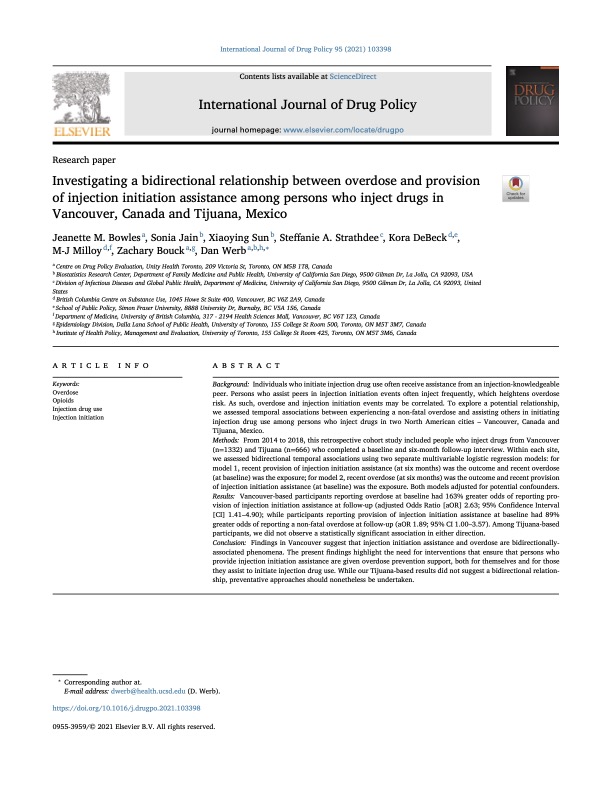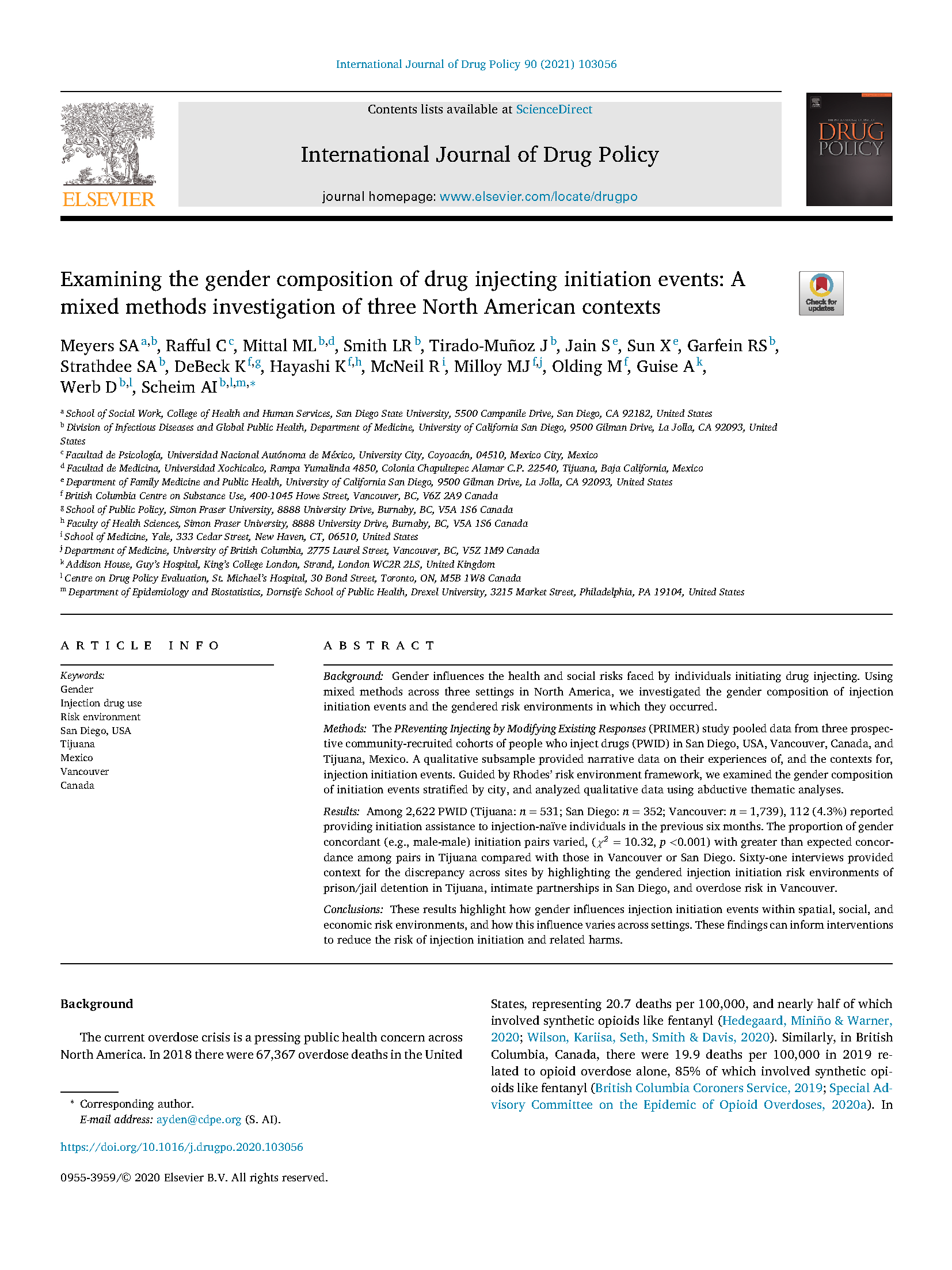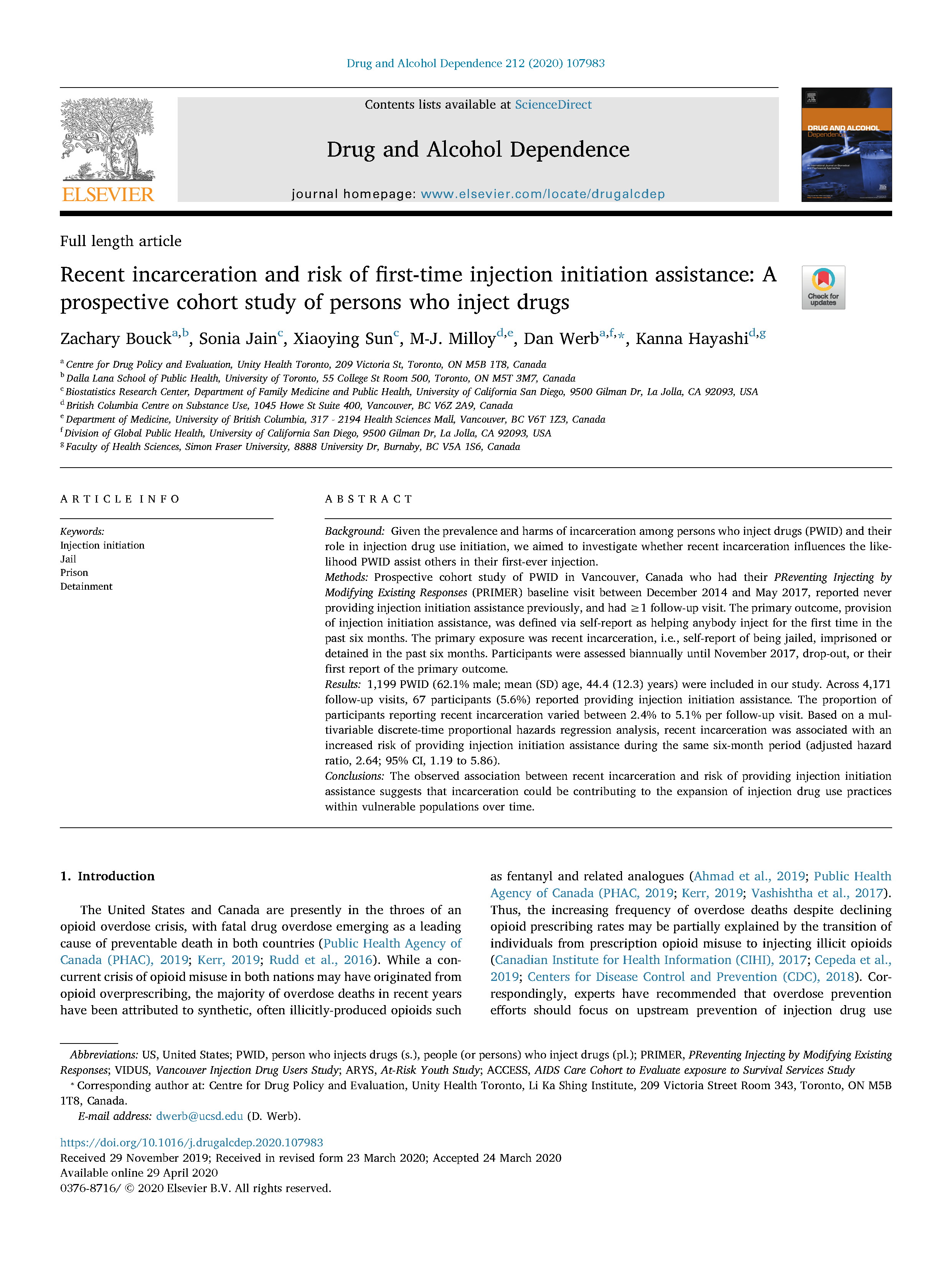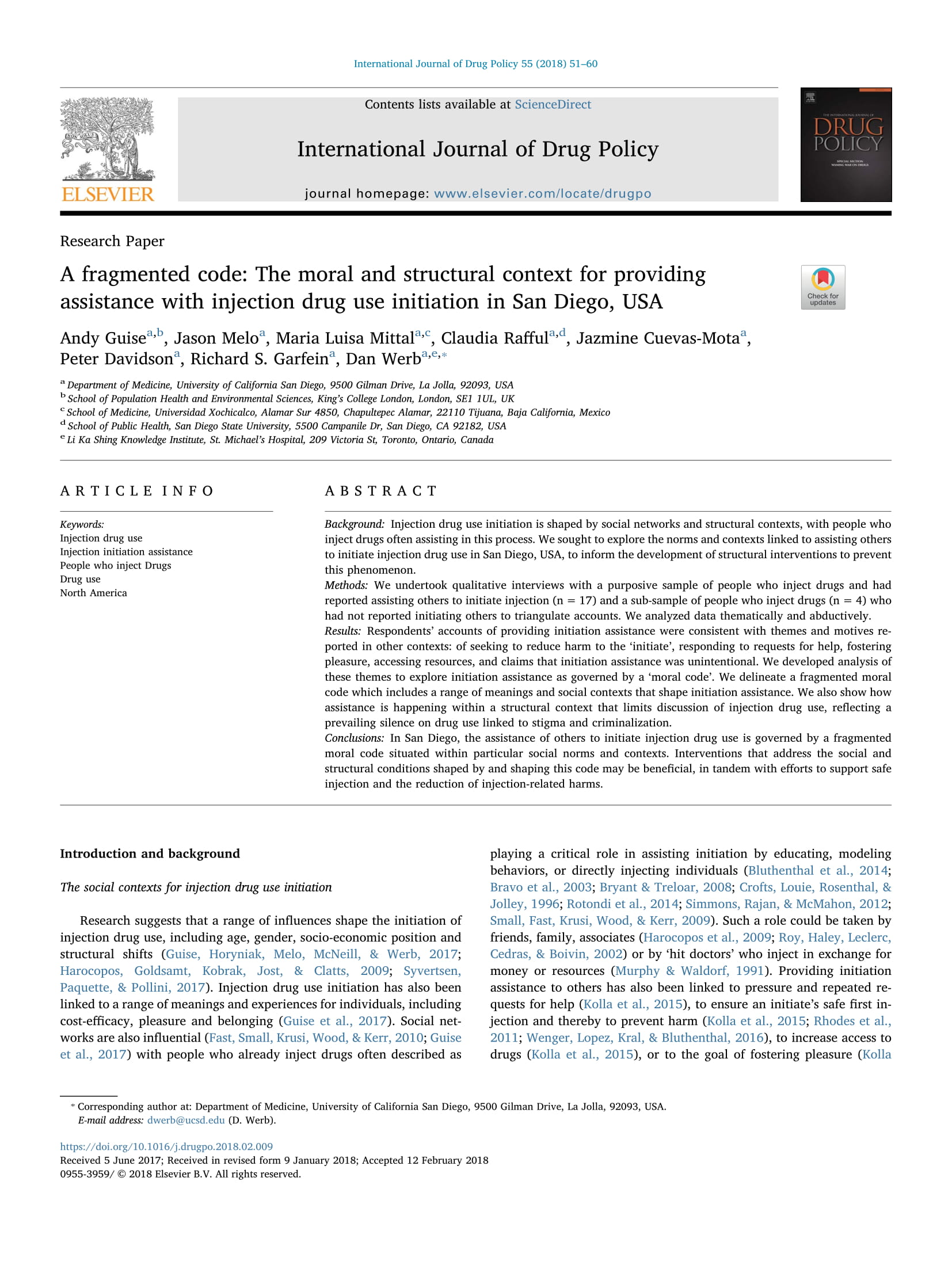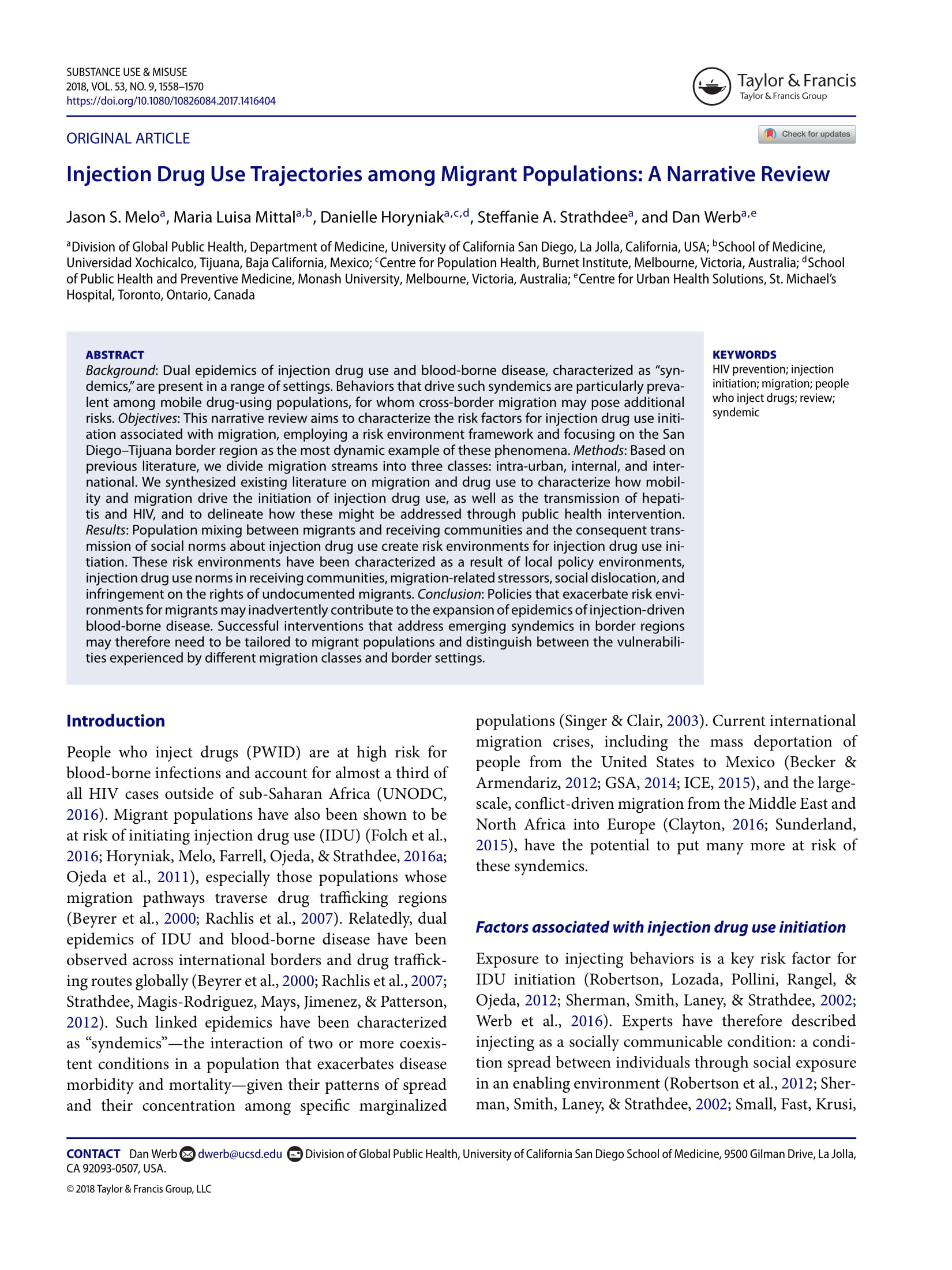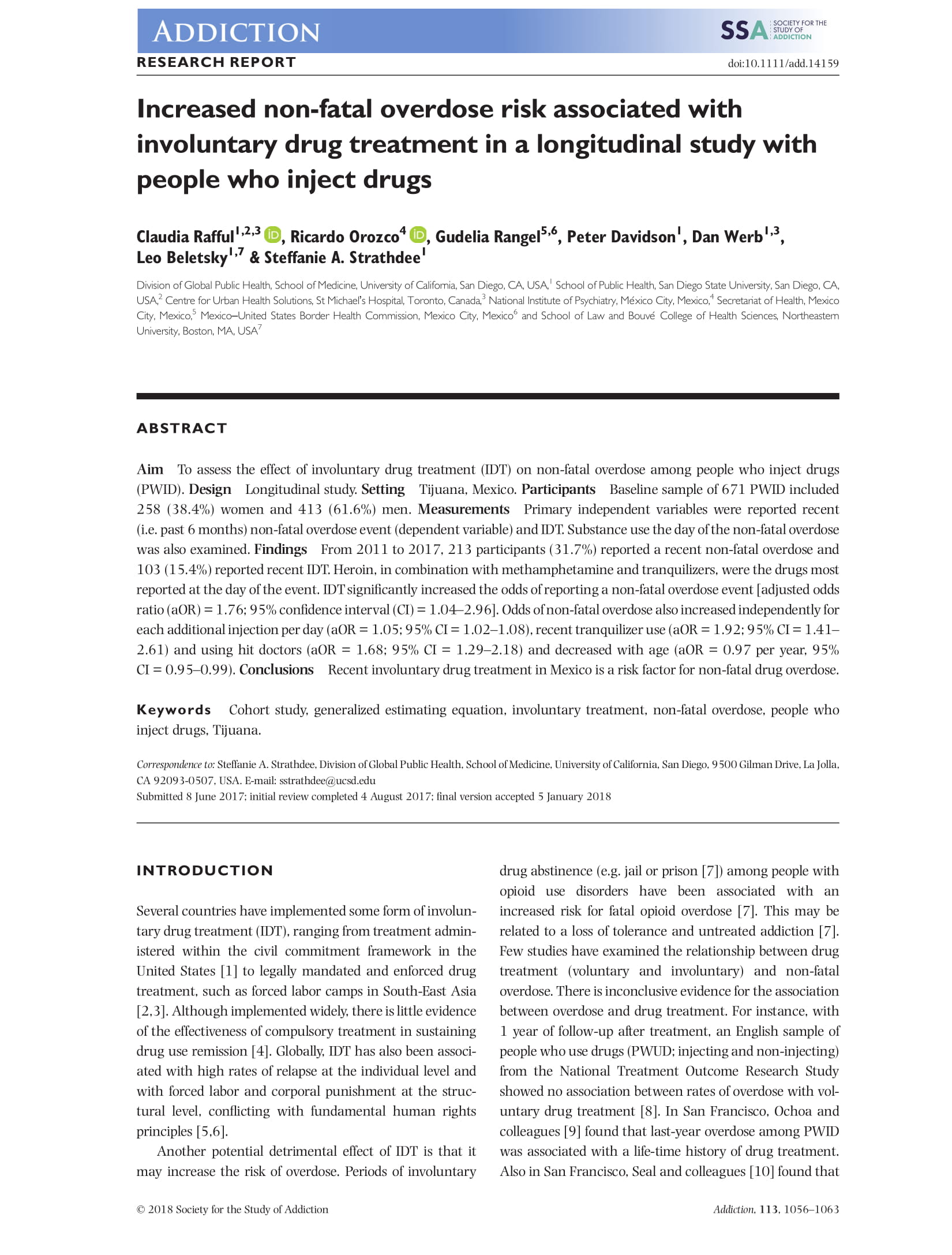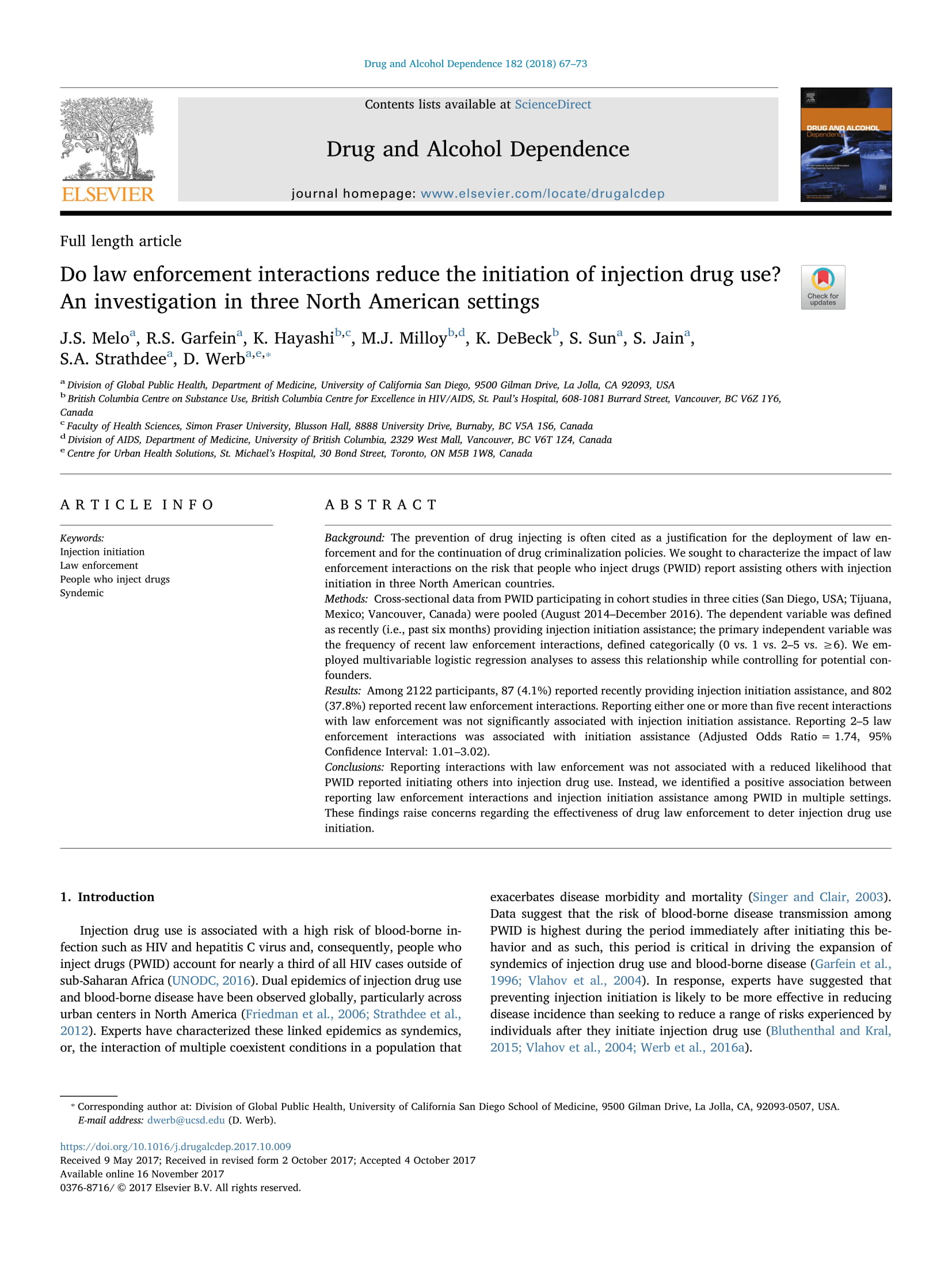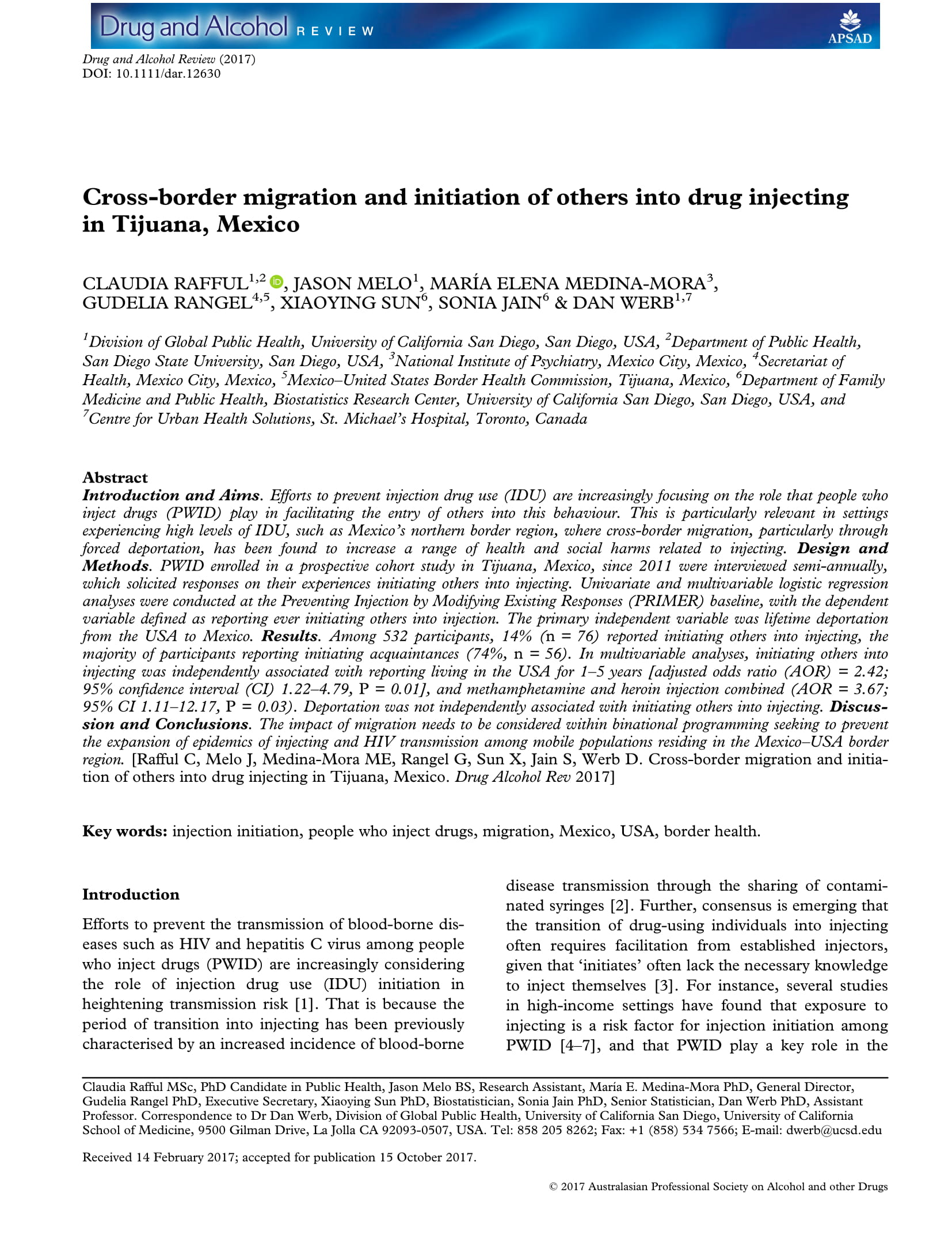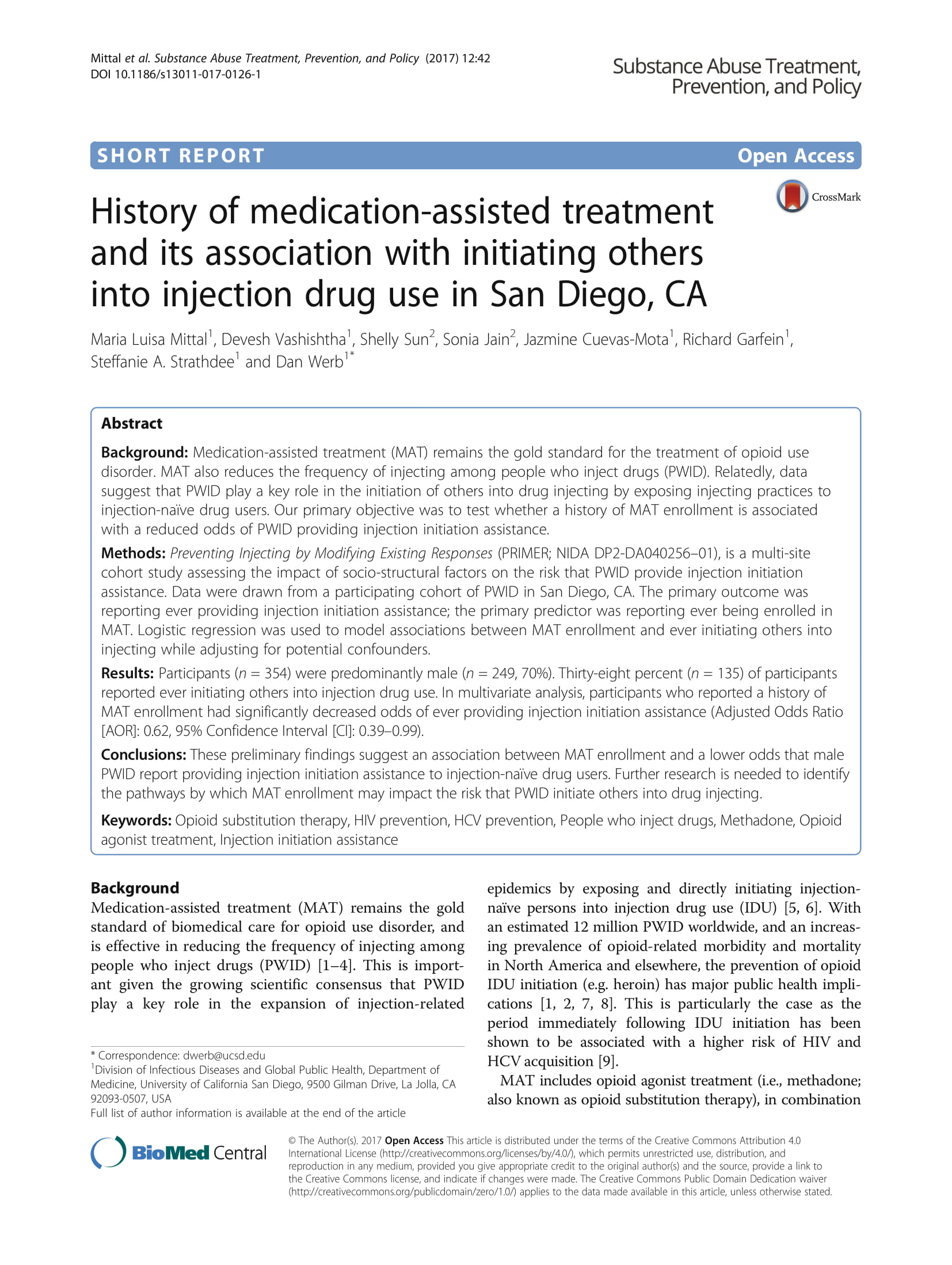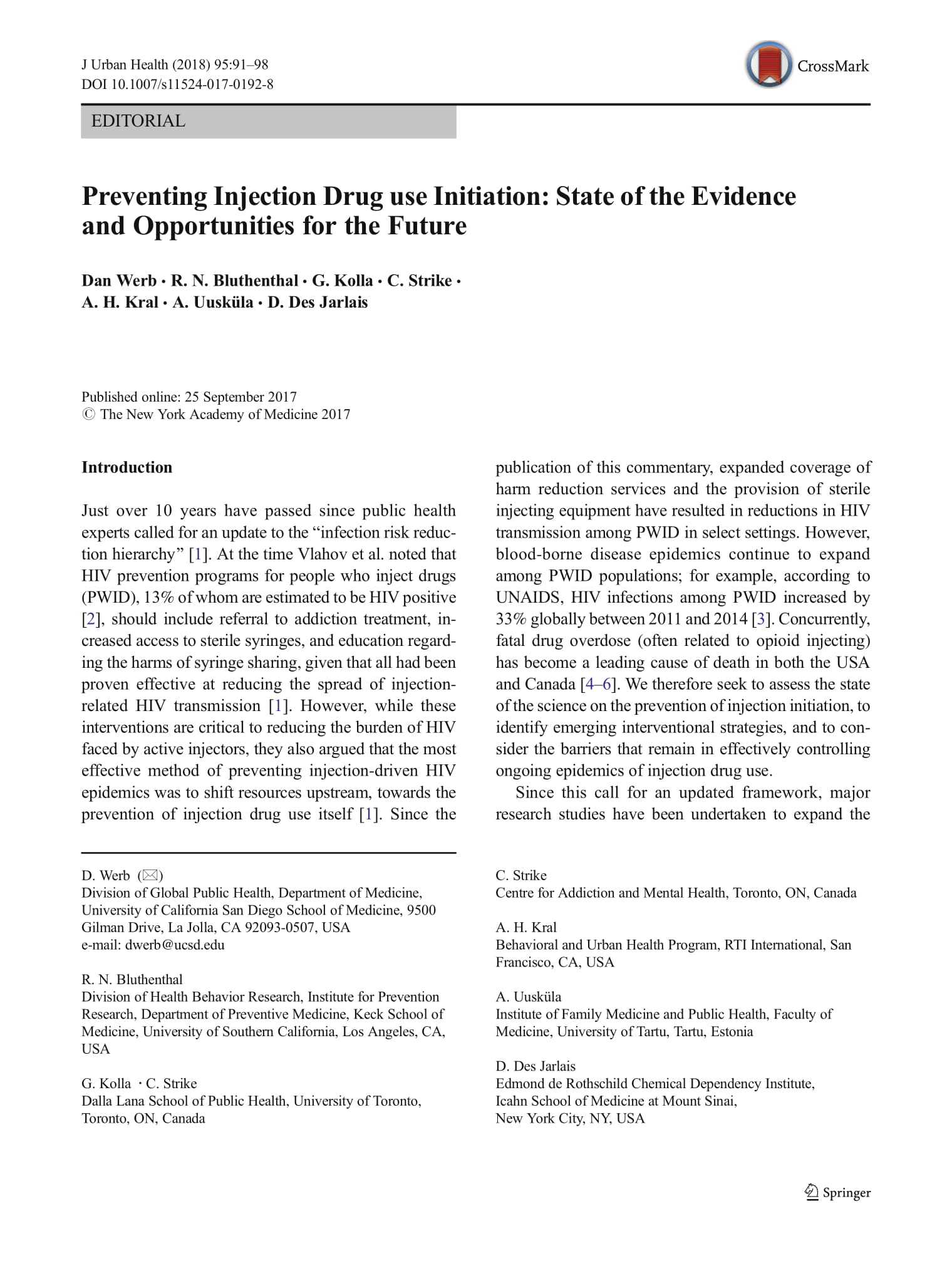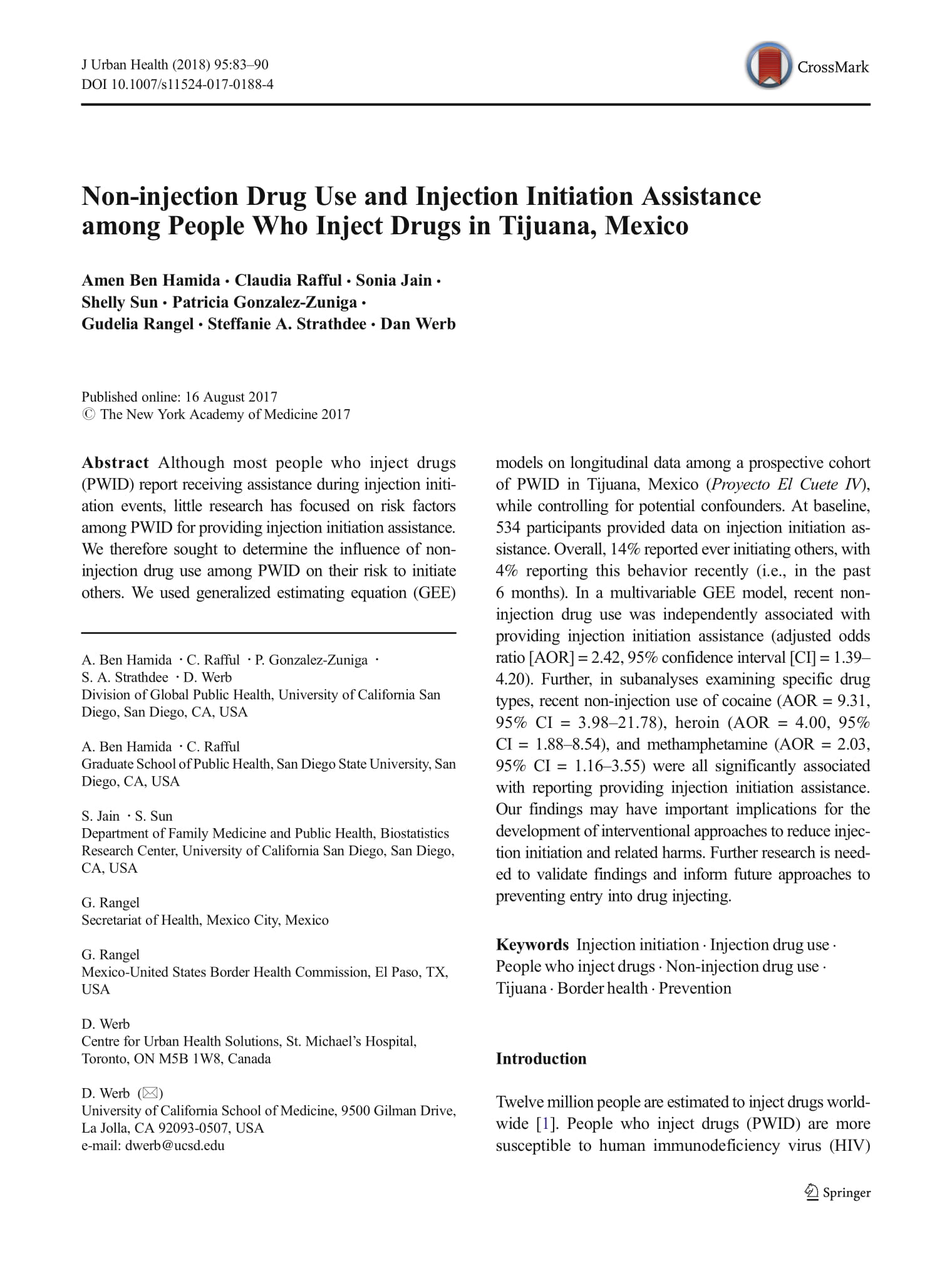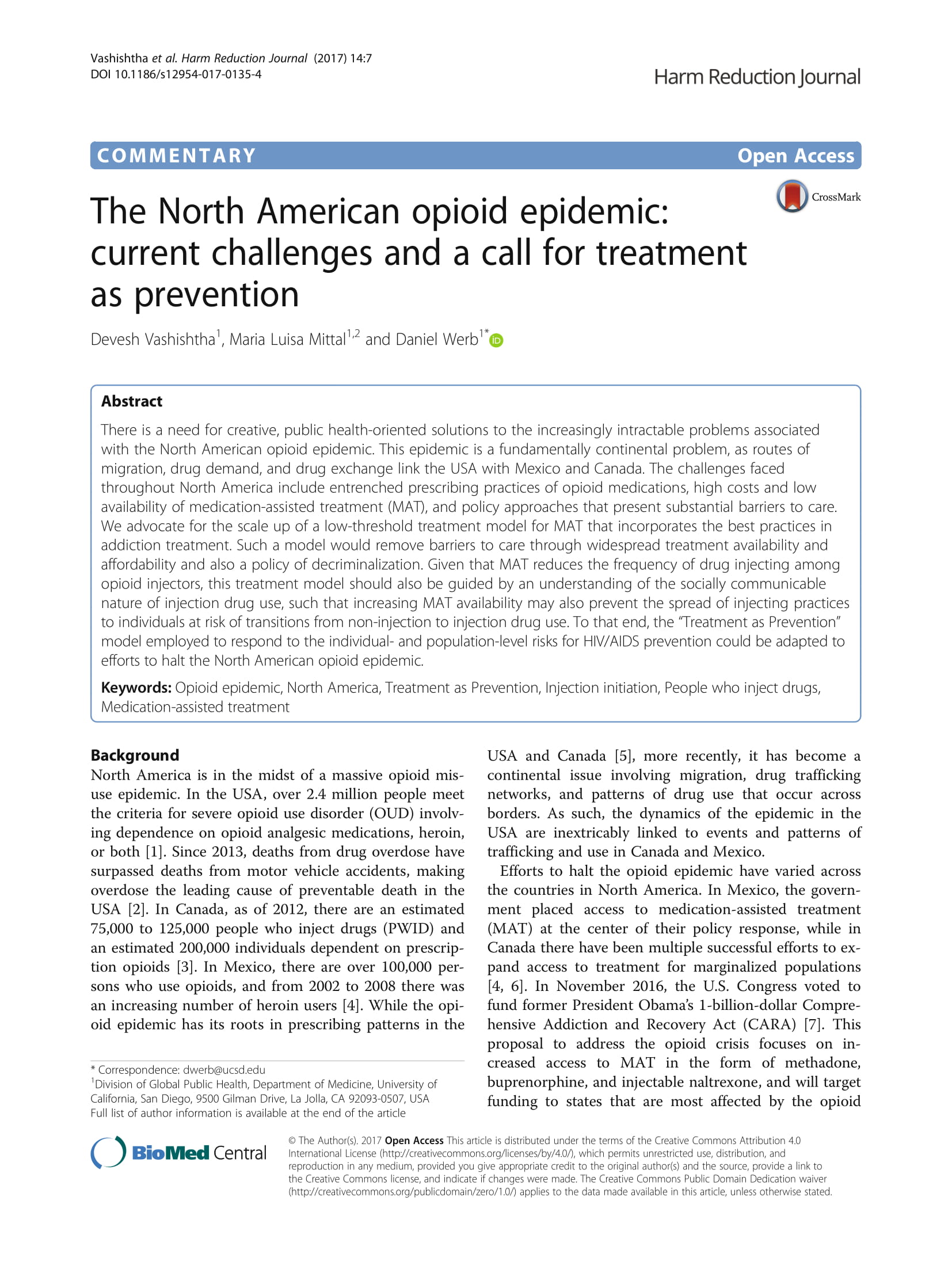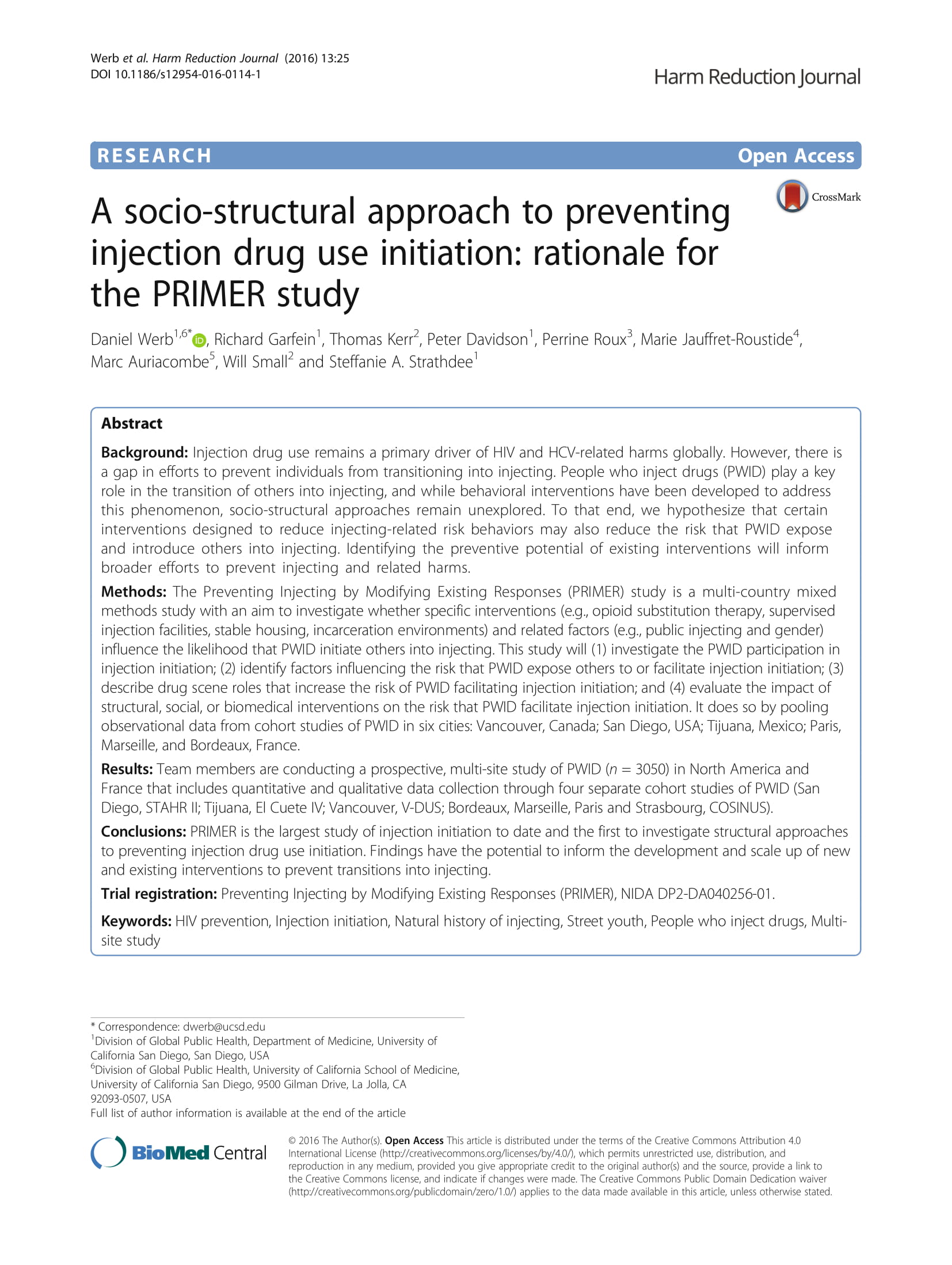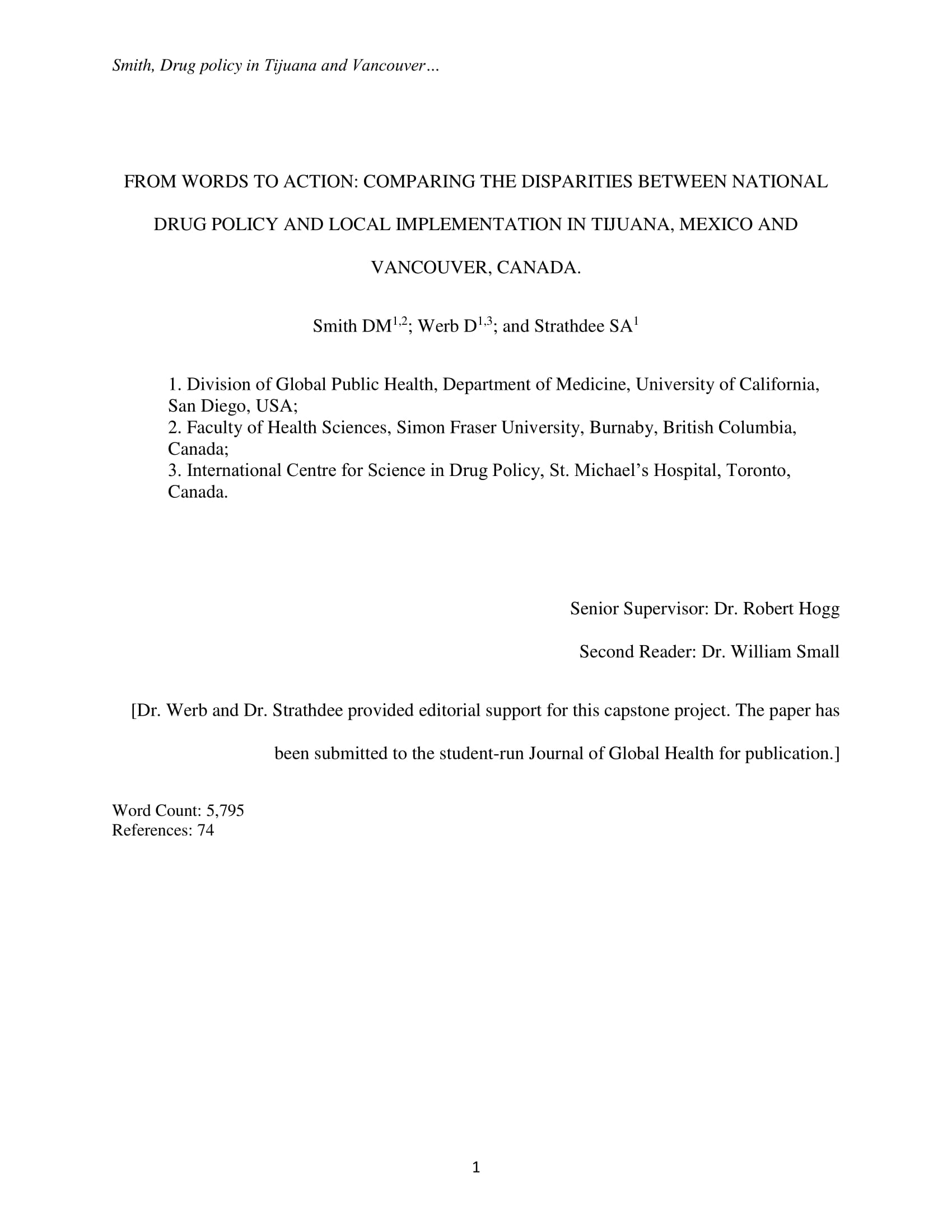Requiring help injecting among people who inject drugs in Toronto, Canada: Characterising the need to address sociodemographic disparities and substance-use specific patterns
Abstract
Background: Those requiring help injecting are at an elevated risk of injection-related injury and blood-borne infections and are thus a priority group for harm reduction programs. As supervised consumption services (SCS) are scaled-up across Canada, information on those who require help injecting is necessary to inform equitable service uptake. We characterised the sociodemographic, structural and drug use correlates of needing help injecting among a cohort of people who inject drugs in Toronto, Canada.
Methods: A cross-sectional baseline survey was administered between November 2018 and March 2020. Unadjusted and multivariable logistic regression models examined associations with requiring help injecting in the past 6 months. A gender-stratified sub-analysis described characteristics of receiving help among those requiring it.
Results: Of 701 participants (31.0% cisgender women), 294 (41.9%) needed recent help injecting. In unadjusted analyses, being a racialised, non-Indigenous person (odds ratio [OR] 1.79, 95% confidence interval [CI] 1.13–2.86) or a cisgender woman (OR 1.72, 95% CI 1.24–2.39) were associated with needing help. In multivariable analyses, requiring assistance was associated with needing frequent help preparing drugs (adjusted OR [AOR] 9.52, 95% CI 4.78–21.28), fewer years since first injection (AOR for 1 year increase: 0.97, 95% CI 0.95–0.99) and injecting stimulants. Among those who required help, cisgender women reported needing assistance more often than cisgender men (P = 0.009).

